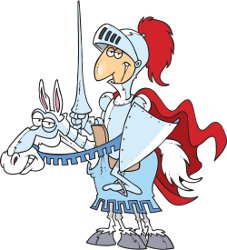American English
Comparison of American English to other Languages with Examples
American English is the primary language spoken in the United States. American English is a form of the English language.
Click Here for Step-by-Step Rules, Stories and Exercises to Practice All English Tenses
English is the second most common spoken language in the world and is listed as the official or co-official language of over 45 countries.
Besides the United States, English is spoken in countries such as the United Kingdom, Jamaica, Australia, Canada and New Zealand.
Part 1: Differences between American English and other forms
of English
Most
of the differences are found in the spoken forms of these
languages.In formal written English, the biggest differences are in spelling and vocabulary.
We will look at some vocabulary and spelling differences between American English and English in the United Kingdom, Australia and New Zealand.
Vocabulary
(British
English and Canadian English => American
English)
The following are a few common differences in words between these forms
of
English. Canadian English usually follows the rules of British English, although they accept American English words as well.
- film => movie
- flat => apartment
- ill => sick
- chips => French fries
- lorry => truck

Vocabulary
(Australian English => American English)
Australian English has more in common with British English and New
Zealand English than American English or Canadian English. Here are a few common differences between Australian English and American English.
- blackboard duster => chalkboard eraser or blackboard
eraser
- bloke or fellow => guy
- caretaker => janitor
- mozzy => mosquito
- windscreen => windshield
- autumn => fall
Vocabulary
(New Zealand English => American English)
One of the main things which makes New Zealand English different from
American English or any other type of English are the words borrowed
from the language of the Maori. The Maori were the Polynesian inhabitants of New Zealand who arrived 500 to 1000 years before the Europeans. The Europeans brought English to New Zealand.
Evidence of the Maori language is all over New Zealand in place names, which are sometimes easier than English place names to pronounce. This is because they are completely phonetic, meaning they are pronounced exactly as they are written.
There are only 16 letters in the Maori alphabet as compared to 26 in English.
In addition, the Maori language only uses pure vowel sounds.
These are a few Maori words used in New Zealand English that all New Zealanders know:
(Maori => American English)
- aroha => love
- wai => water
- haka => dance
- tangi => funeral
- pa => fortress

(New Zealand English => American English)
- mincemeat => ground beef
- bum bag => fanny pack
- smarties => M&M's
- bonnet => hood (of car)
- jumbo bin => dumpster
- sweets or lollies => candy

Spelling Differences
Australian English, Canadian English and New Zealand English probably have more in common with British English than American English.The most common spelling differences between American English and the other forms of English are listed here.
1. Words ending in -ou in American English
usually end in -our in other forms of English.
Examples (American English => other forms of English)
- color => colour
- neighbor => neighbour
- favor => favour
- armor => armour

2. Words ending in -er in American English usually end in -re in other forms of English.
Examples (American English
=> other forms of English)
- center => centre
- centimeter =>
centimetre
- meter => metre
- theater => theatre

3. Words ending in -yze in American English usually end in -yse in other forms of English.
Examples (American English => other forms of English)
- analyze => analyse
- catalyze => catalyse
4. Words ending in -ise/ize are more
confusing.
American English only uses -ize (criticize, jeopardize), whereas both
forms are acceptable in other forms of English. However, the ending
-ise is more common in other forms (criticise, jeopardise).
5. Words ending in -og in
American English end in -gue in other forms of English.
Examples (American English => other forms of English)
- catalog => catalogue
- dialog => dialogue
6. There are many other spelling
differences between American English and other forms of English.
Examples (American English => other forms of English)
- gray => grey
- axe => ax
- jewelry => jewellry
- tire => tyre
- program => programme
- license => licence
- airplane => aeroplane

These are just a sampling of the spelling differences between American English and other forms of English.
Part 2: What makes American English special when compared to
other
languages?
American English words:
American English originated from the founding of the original colonies in the 1600s but has grown to include words from many other languages. American English has adopted words from Native American languages, Spanish, African languages and more.Examples:
(To see the meanings of these words you can look them up in the Oxford Advances Learner's Dicitonary.)
| Borrowed Word | Language of Origin |
| tortilla | Spanish |
| fiesta | Spanish |
| mesa | Spanish |
| gumbo | African |
| tomahawk | Algonquin |
| moose | Algonquin |
| buffet | French |
| accompaniment | French |
| karaoke | Japanese |
| yam | West African |
| jazz | West African |
| ketchup | Chinese |
| kindergarten | German |
| bratwurst | German |
Sounds in American English:
There are a few sounds found in American English that are not common in other languages. Many non-native speakers of American English may find these sounds difficult to pronounce. (Non-native means American English is not your first language.)The most common sounds are:
• r as in red or
right
• l as in left or like
• th as in thing or the
• l as in left or like
• th as in thing or the
There are also many letter combinations that can be difficult to say.
These are a few common consonant combinations. A consonant is any letter in the American English alphabet except for the vowels.
Examples:
- br as in bright or bring
- nth as in month or ninth
- spr as in spring or spruce
- lk as in milk or silk
- str as is string or strong
- ngth as in length
- nd as in friend or land
- ght as in right or fight
- st as in last or first
- bl as in blue
- sh as in shut and wish
A, E, I, O and U are vowels in the American English language.
There are also many vowel combinations in American English that can be difficult to say. Here are some common vowel combinations.
Examples:
- ou as in sound or round
- ai as in paid or said
- ie as in friend
- ue as in blue
- oa as in boat or goat
There are many words in American English that are pronounced the same but have different meanings.
Examples:
- blue and blew
- to, two and too
- there, their and they're
- night and knight
- I and eye
- since, cents and sense
- red and read
- bear and bare
Some words in American English have more than one meaning.
Examples:
bark = outside of a tree (noun)The bark on the tree is hard.
bark = the sound a dog makes (verb)
My dog likes to bark at night.
pet = animal (noun)
Is your pet a dog or cat?
pet = action of rubbing (verb)
I want to pet your dog.
Some words can be pronounced in several ways.
Examples:
- read
I read that book last year. (pronounced like red)
- close
I want to sit close to you. (pronounced close with an s)
Letter sounds and word pronunciations are just a few reasons why American English is unique and special.
Click here for more on the differences between American and British English.
These were the uses of American English. Now that you know them, it is time to practice! Read and do exercises.
Get Updates, Special Offers, and English Resources
Download your FREE GIFT (the first two chapters of
English Short Stories Book and Workbook)
as soon as you join!

By submitting your email, you consent to receiving updates and newsletters from us and to the sharing of your personal data with third parties for the purposes of sending you communications. We will not spam you. You can unsubscribe at any time. For more information, please see our privacy policy.






